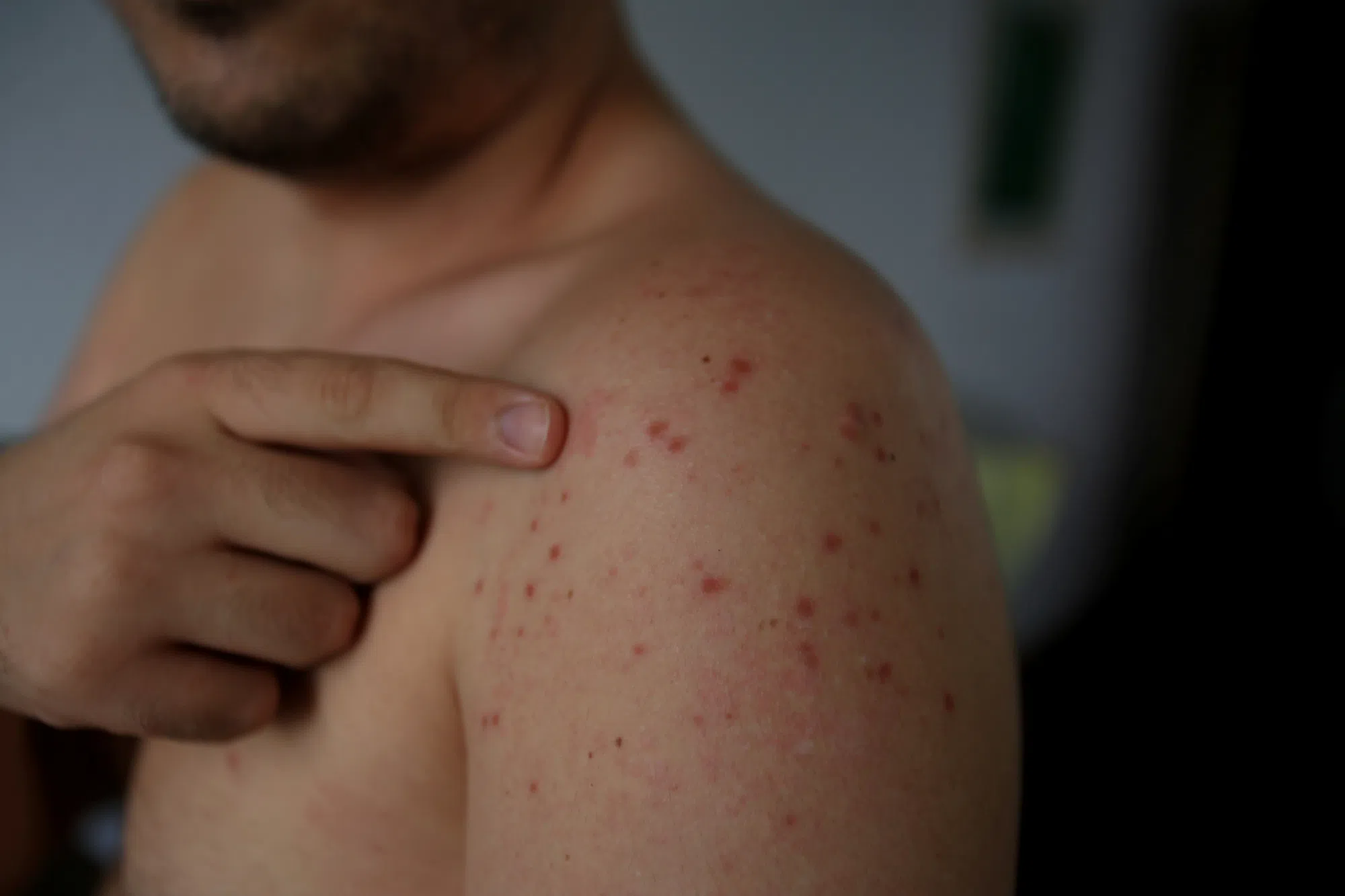
joasouza / Depositphotos.com
May 1, 2025 – The Chicago Department of Public Health and Cook County Department of Public Health have identified two confirmed cases of measles. These are the first two cases in in the state this year.
One case was identified as an adult who is a suburban Cook County resident, and whose vaccination status is unknown. They presented to a local Hospital for medical care on Monday, April 28 and was quickly isolated.
Another case was identified in an adult Chicago resident who traveled internationally through O’Hare Airport in early April. The individual had 1 prior dose of MMR vaccine. This patient had rash onset on April 25 and has been isolated at home since being diagnosed.
All persons 12 months of age or older who plan to travel internationally should ensure that they have received 2 doses of MMR at least 2 weeks prior to travel, or other evidence of immunity.
The health departments are working together collaboratively to identify and notify people who may have been exposed. The Cook County Department of Public Health is investigating the Suburban Cook County case, and the City of Chicago Department of Public Health is investigating the Chicago case.
The following locations are points of potential public exposure:
• Monday 4/21/2025: Chicago Public Library – Independence Branch, 4024 N. Elston Ave.
• Monday 4/21/2025: Fittingly Delicious, 3939 W. Irving Park Rd.
• Tuesday 04/22/2025: O’Hare Airport, 10am–8pm, especially Terminal 1
• Wednesday 04/23/2025: O’Hare Airport, 10am–8pm, especially Terminal 1
• Friday 04/25/2025: Aldi: 7235 39th St, Lyons, IL 6053, 10am-12:30pm.
• Sunday 04/27/2025 Shell: 3901 S. Harlem Ave., Stickney, IL 60402, 10am-12:30pm.
• Monday 04/28/2025 Mobil: 2945 S. Harlem Ave, Berwyn, IL 60402, 10:20am-1pm.
For Individuals Who May Have Been Exposed:
Individuals who may have been exposed should notify their healthcare provider if they are unsure about prior vaccination. The healthcare provider will determine the need for testing if symptoms develop.
If an exposed individual develops symptoms, they should notify their healthcare provider or a healthcare facility before going to a medical office or emergency department for evaluation to ensure that special arrangements can be made to prevent other patients and medical staff from possible exposure.
Exposed individuals that are unvaccinated against measles, mumps, and rubella (MMR) should talk with their doctor about getting MMR vaccine. It is not harmful to get MMR vaccine after being exposed to measles, mumps, or rubella, and doing so may prevent severe measles if given early enough after exposure.
Most individuals are vaccinated against measles routinely in childhood and are not at high risk. The best defense against measles is vaccination. Two doses of MMR vaccine are 97% effective against measles and generally provide lifelong immunity.
o The first dose should be given between 12-15 months of age
o The second between the ages of 4-6 years old.
“As public health officials around the state continue to work diligently to guard against further spread of measles, we are reminded again that being fully immunized remains the best and most effective way for everyone to protect themselves and those they love,” said IDPH Director Dr. Sameer Vohra. “The MMR vaccine is safe and effective. We encourage anyone who is unvaccinated, or under-vaccinated, to speak with their medical provider and take appropriate steps to get up to date on the recommended shots.”
Measles is a highly contagious respiratory disease that spreads easily through the air when an infected person breathes, coughs or sneezes. Measles is so contagious that if one person has it, 90 percent of the people close to that person who are not immune will also become infected with the measles virus. Complications from measles can lead to pneumonia, seizures, hearing loss, life-long brain damage and death.
The virus can linger in a room for up to two hours and can be especially dangerous for babies and young children, pregnant women, and people with compromised immune systems.
Measles symptoms appear up to 21 days following exposure. Symptoms of measles include rash, high fever, cough, runny nose, and red, watery eyes. The rash usually begins on the face and spreads to the trunk. A person is generally contagious the four days before and four days after the onset of a rash.
